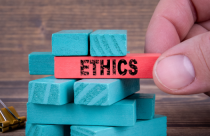Why Are Journals So Slow to Retract Papers?

When Is a Paper Retraction Warranted?
The Committee on Publication Ethics (COPE) offers specific guidance as to when journal editors should consider retracting a publication:
- If they have clear evidence that the findings are unreliable, either as a result of misconduct (e.g. data fabrication) or honest error (e.g. miscalculation or experimental error).
- If the findings have previously been published elsewhere without proper cross-referencing, permission or justification (i.e. cases of redundant publication).
- If it constitutes plagiarism.
- If it reports unethical research.
Pulling the Trigger
The retraction of a published paper or article can be requested by an author who has uncovered an error, or by the journal editor who uncovered the same error, or who has other concerns that warrant a retraction.
The decision is not always as straightforward as it might seem, since there may be disagreement between author and editor as to whether the error should be addressed by a correction or a full retraction. The editor is concerned about the reputation of his or her journal, whereas the author is concerned about his or her personal reputation. In both cases, the concern is for the shadow that the retraction will cast over other work, but the editor will typically have the final say.
Negotiation or Procrastination?
The author and editor may not be the only stakeholders in a decision to retract. The institution or corporation by which the author is employed may have a vested interest in the decision. If the employer is a government agency, there may be security issues involved, and corporate-funded research often has multiple confidentiality agreements attached to it that can prompt extended investigations and expensive litigation. Those limitations may even preclude any form of notification that a retraction is being considered, which leaves the original piece of work untouched while stories of failed replication studies or definitive evidence of fabricated research in other studies by the same authors fly around the academic community.
Since the outcome of a retraction is rarely positive for a journal, the allegations of deliberate procrastination are understandable. No editor would want to willingly jump in front of a barrage of negative feedback, but unless there are specific procedural or legal reasons for not doing so, surely the right thing to do is to notify the journal’s readership and the larger academic community that a problem has been found with this particular article or research paper, and that any other work or papers connected to it should be approached with caution?
A Failure to Perform
The tendency of journal editors to treat each retraction in isolation represents a clear failure to perform their obligation of ethical conduct in ensuring that their readers are presented with the most up-to-date information. There is no doubt that retraction negotiations can be complex, extended, and increasingly litigious, but to use that as an excuse not to even acknowledge that a published paper is under review is unconscionable. Research does not exist in isolation. Nor is it ever likely to be completely unique. For that reason, any errors in one study are likely to impact the progress and validity of many other concurrent and subsequent studies. Any delays in informing those research teams have the potential to do irreparable harm.










Let me add something. Sometimes, the editors are misinformed by the authors, either because the scenario is a little bit too professional, or the authors are too famous. Like this one:
https://www.ncbi.nlm.nih.gov/pmc/articles/PMC6558577/